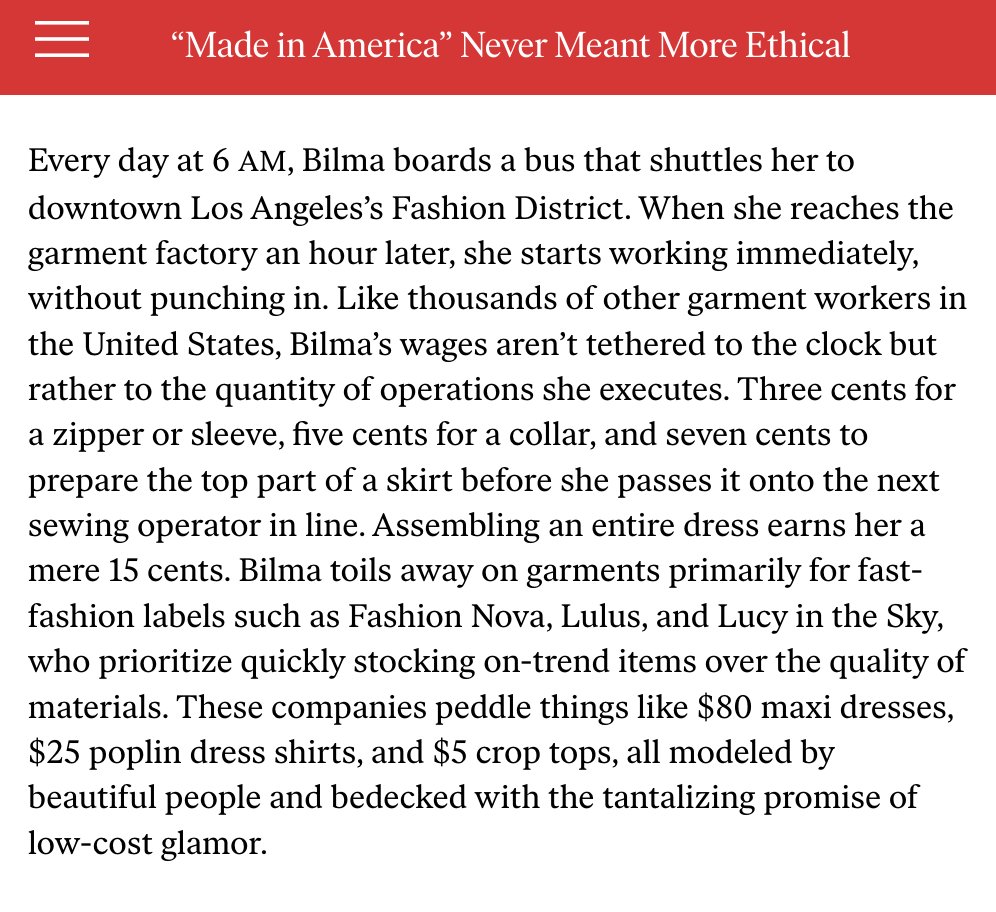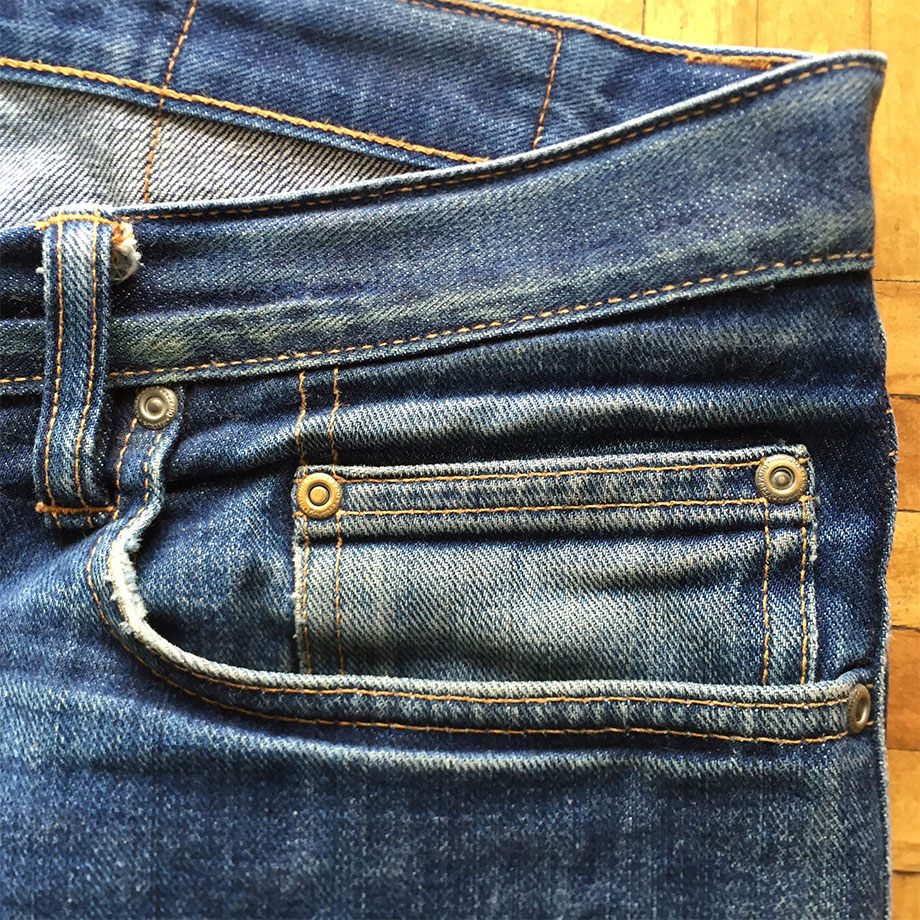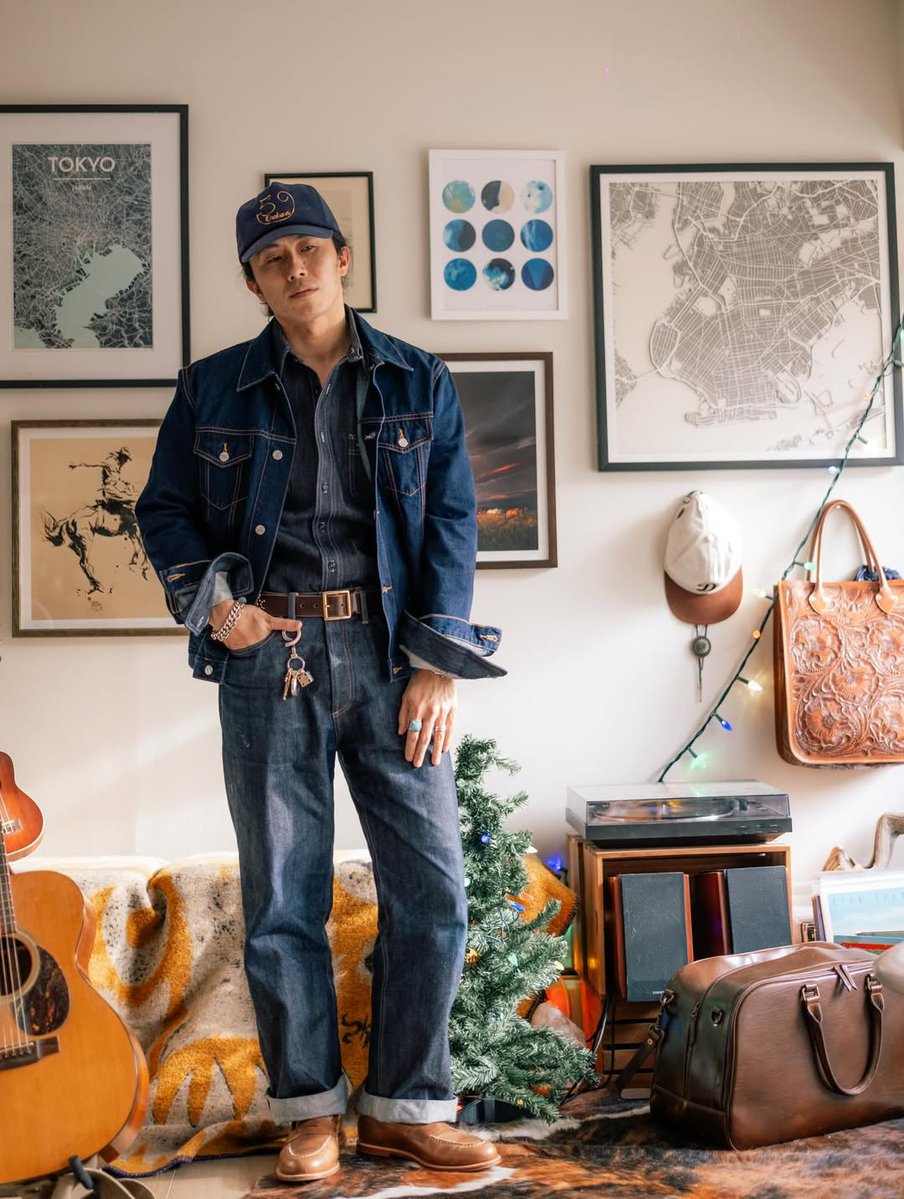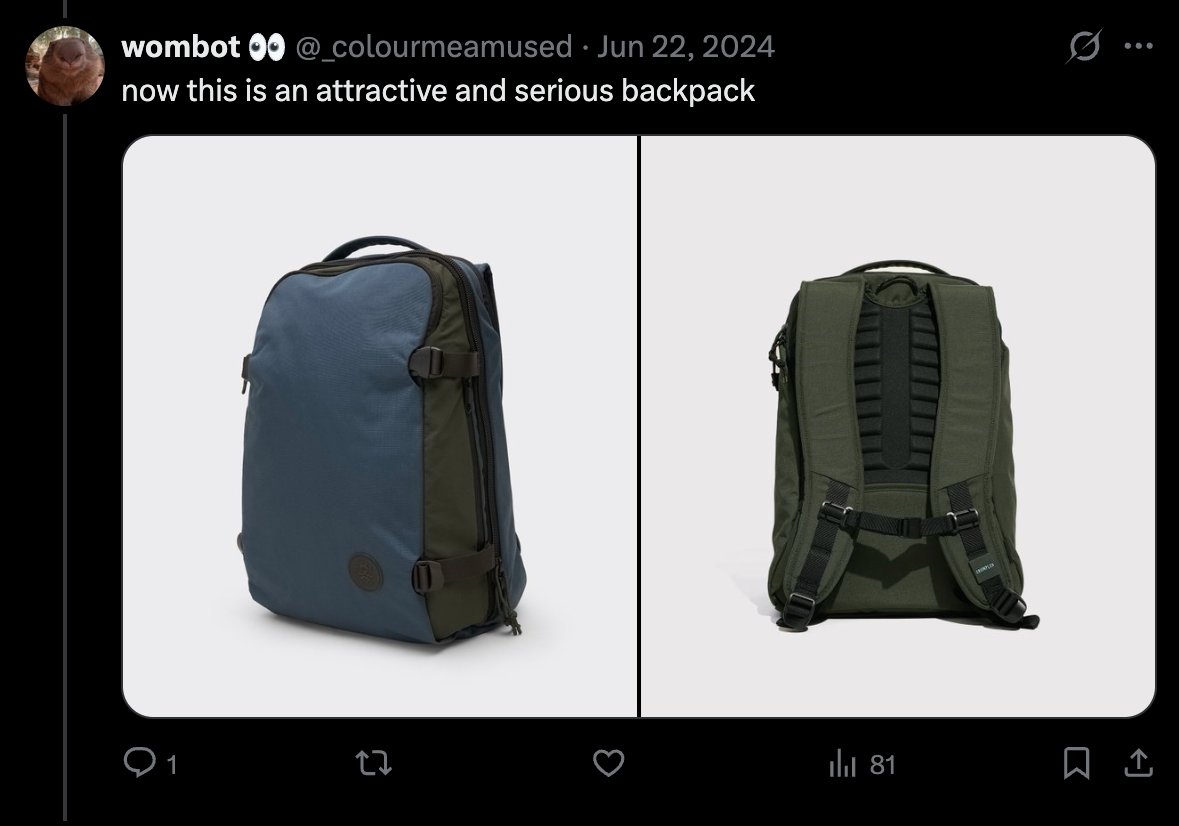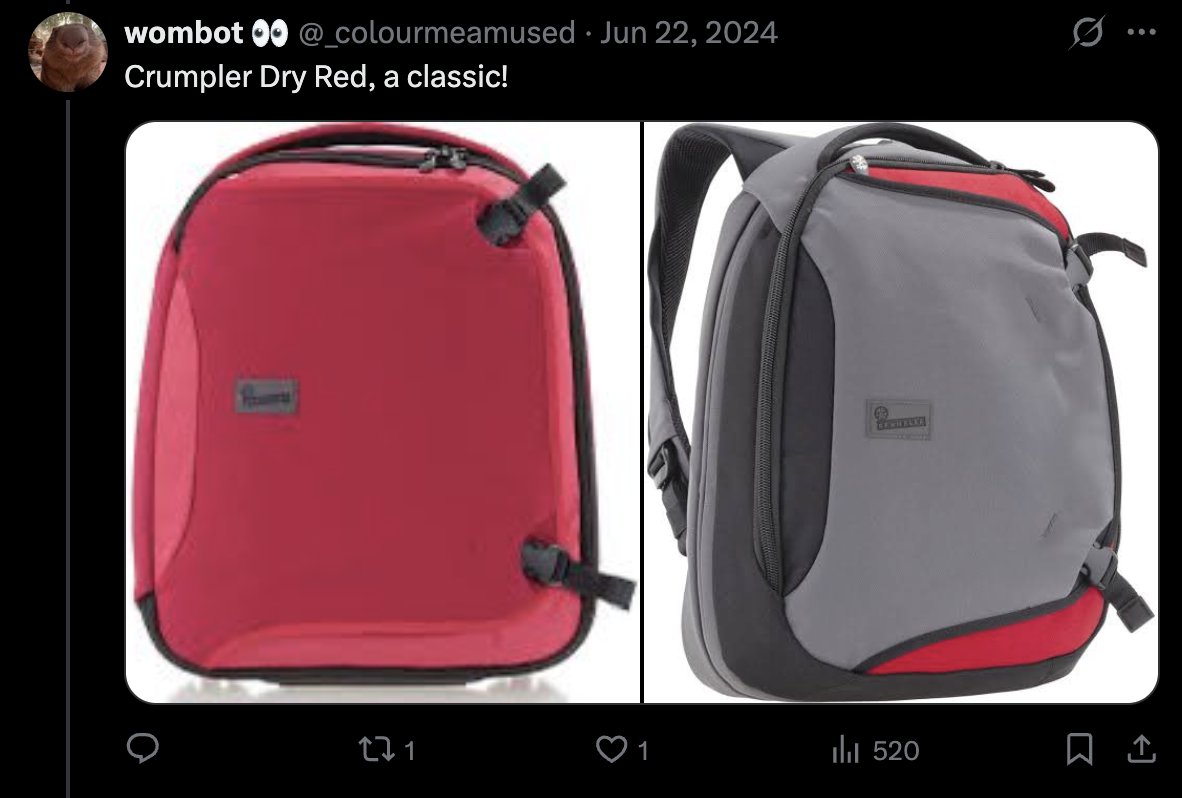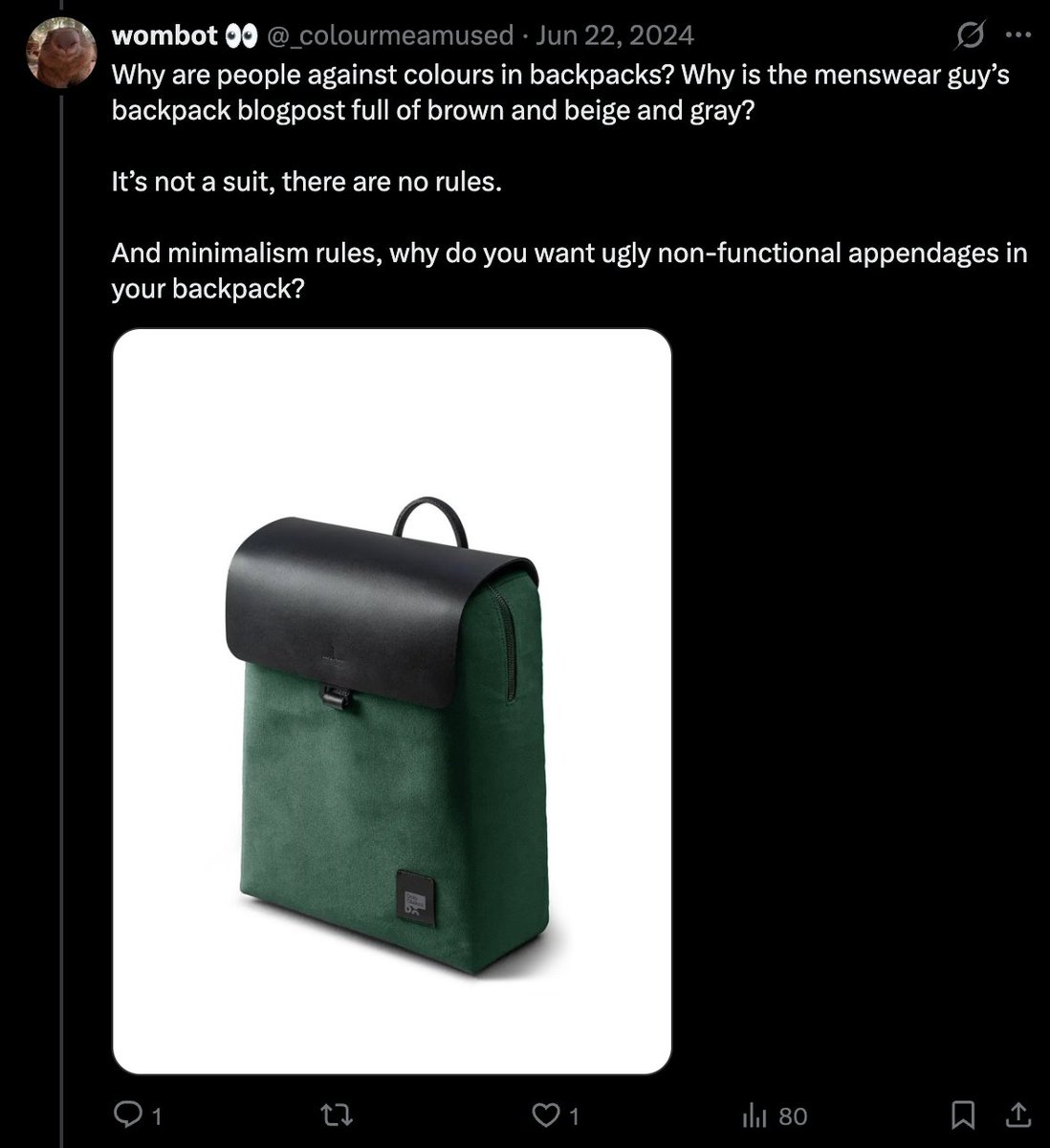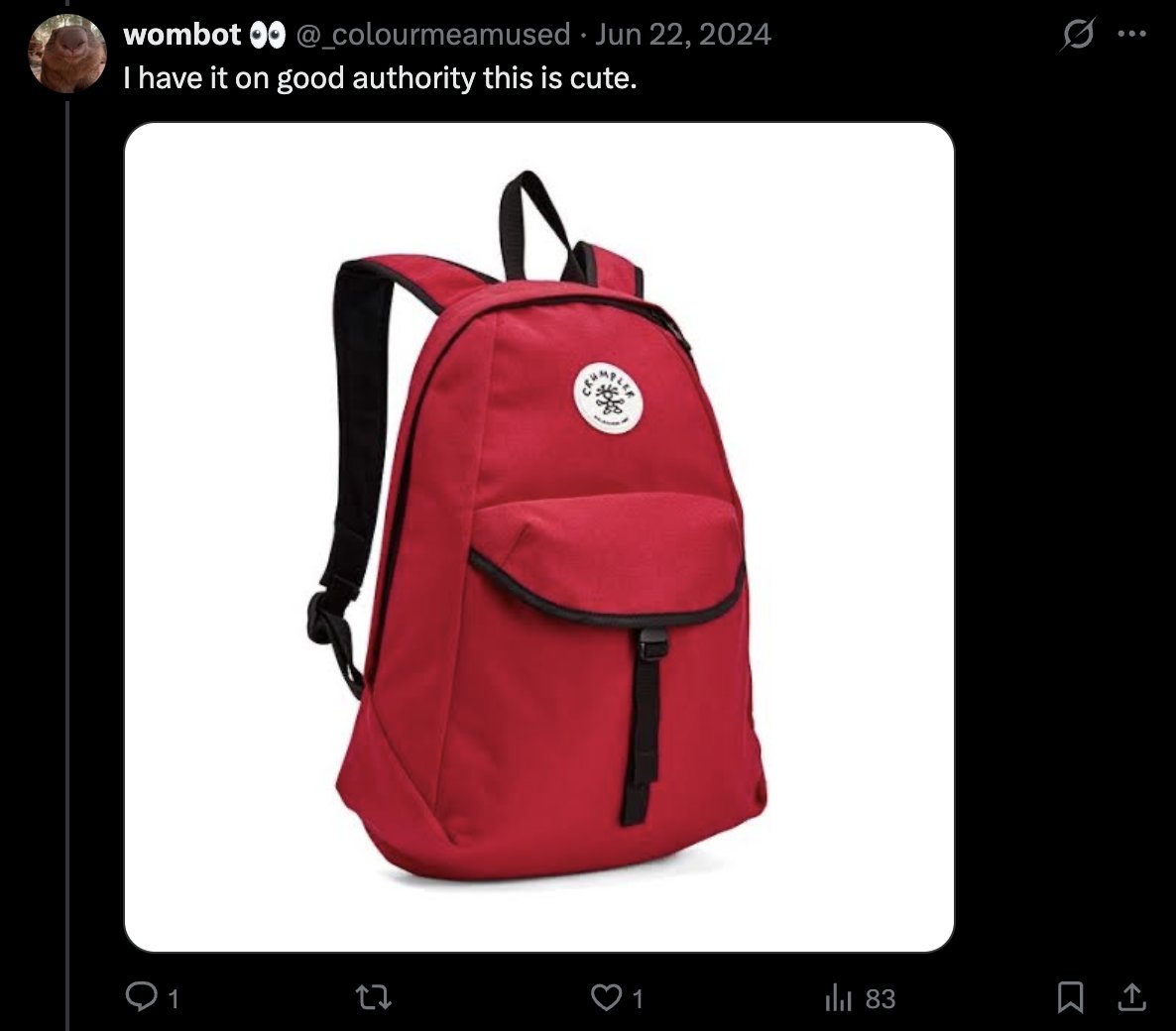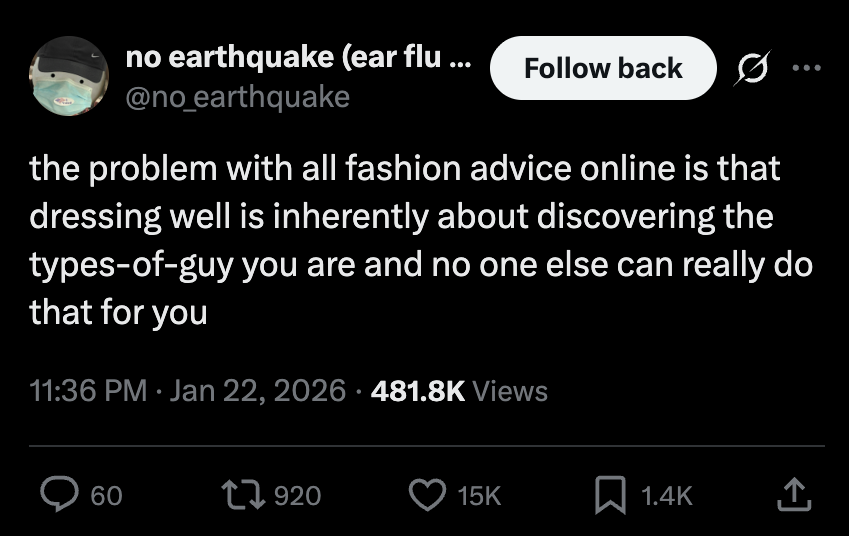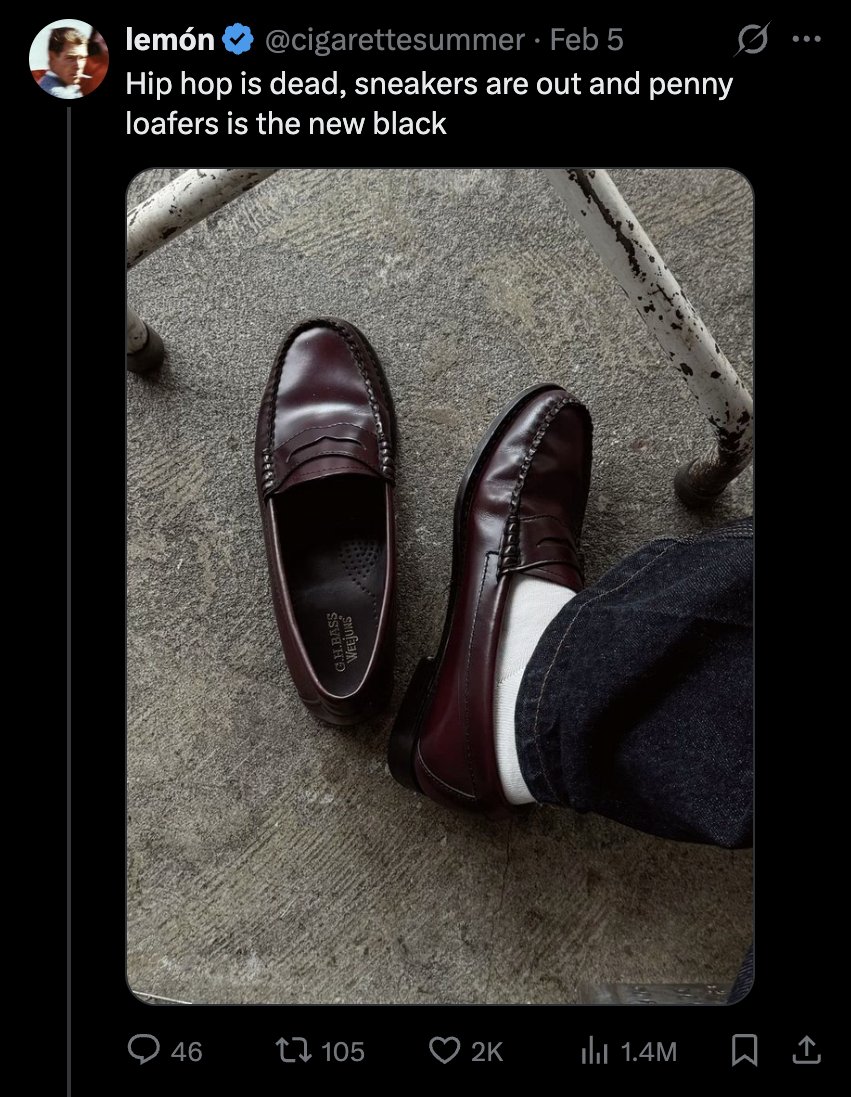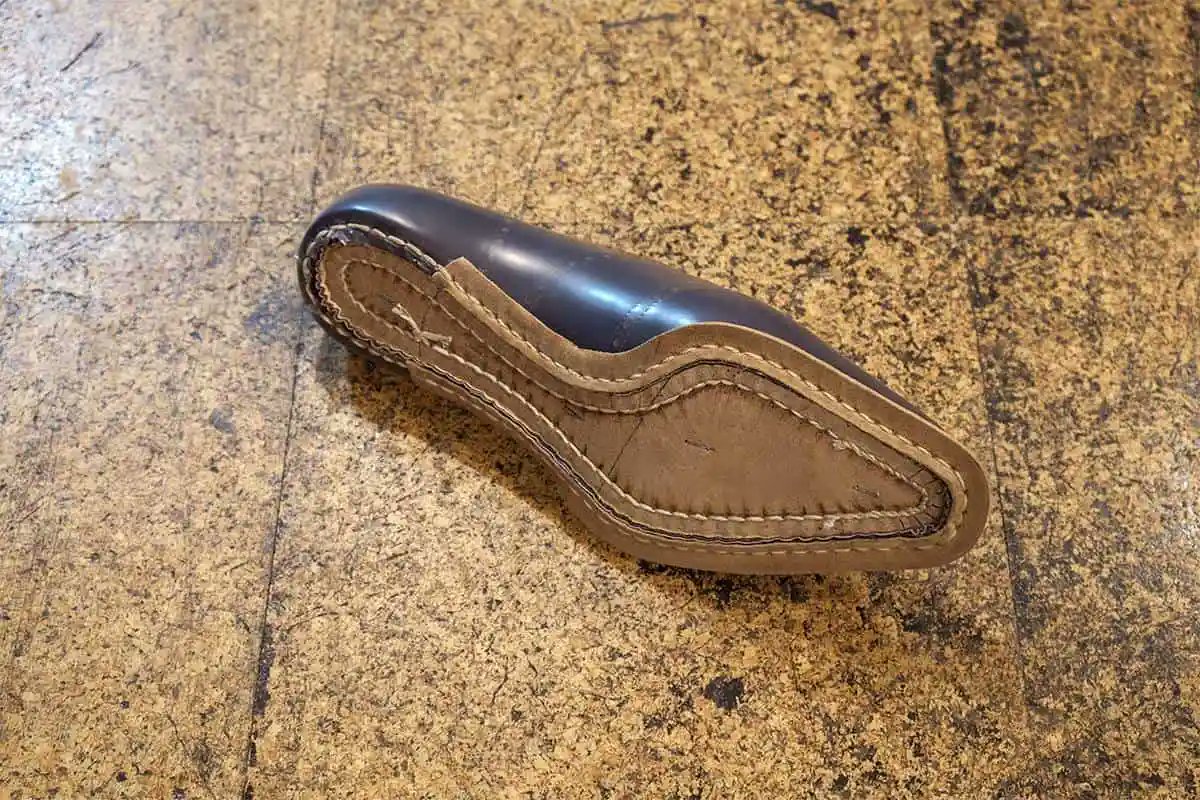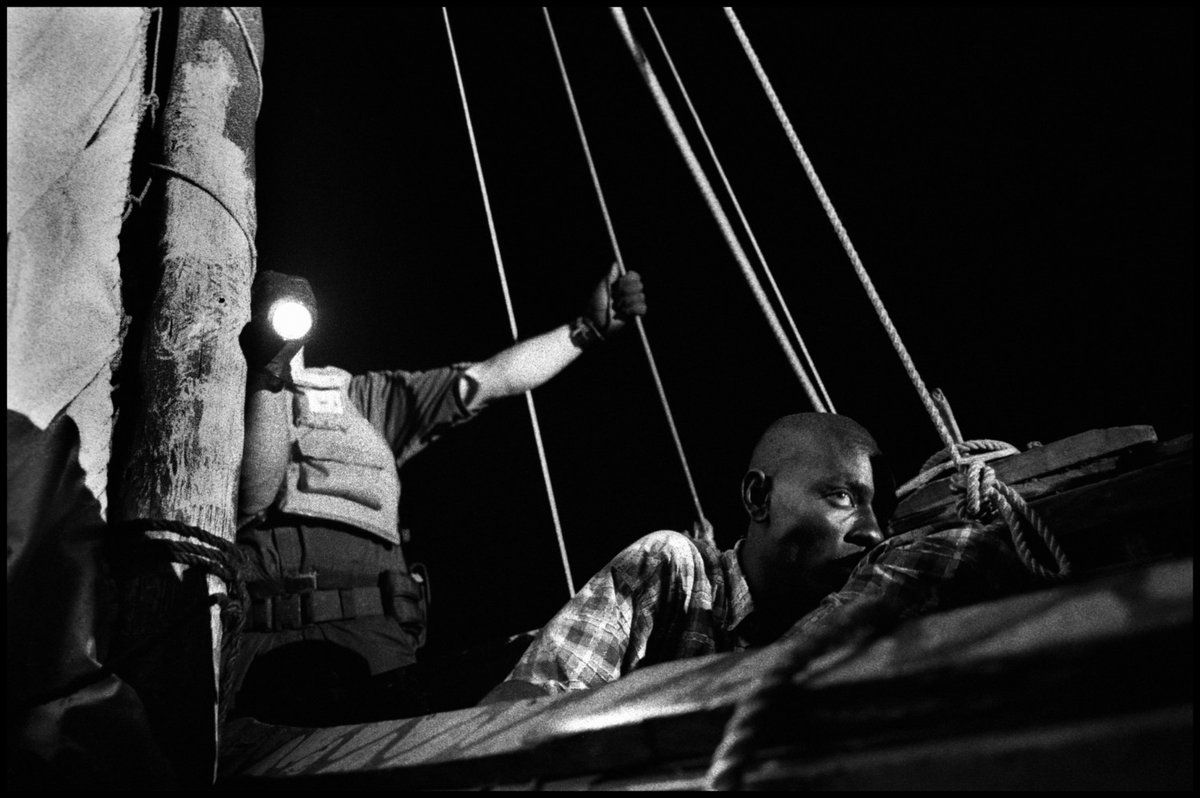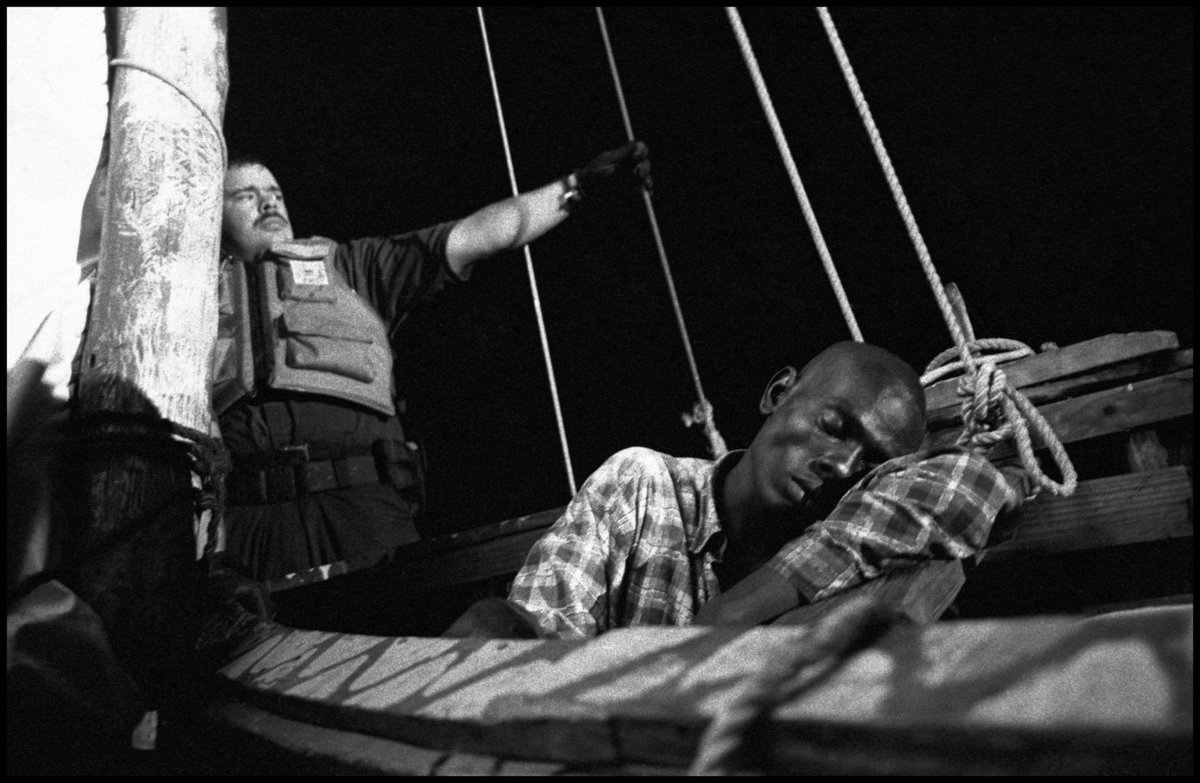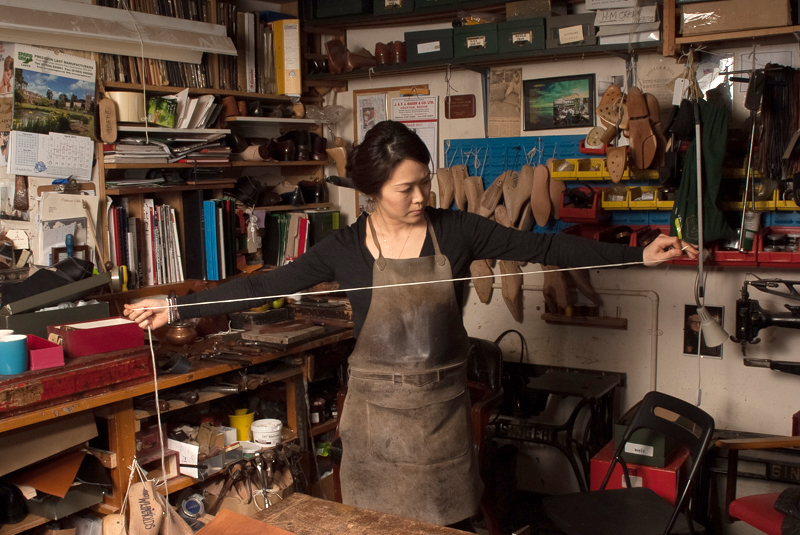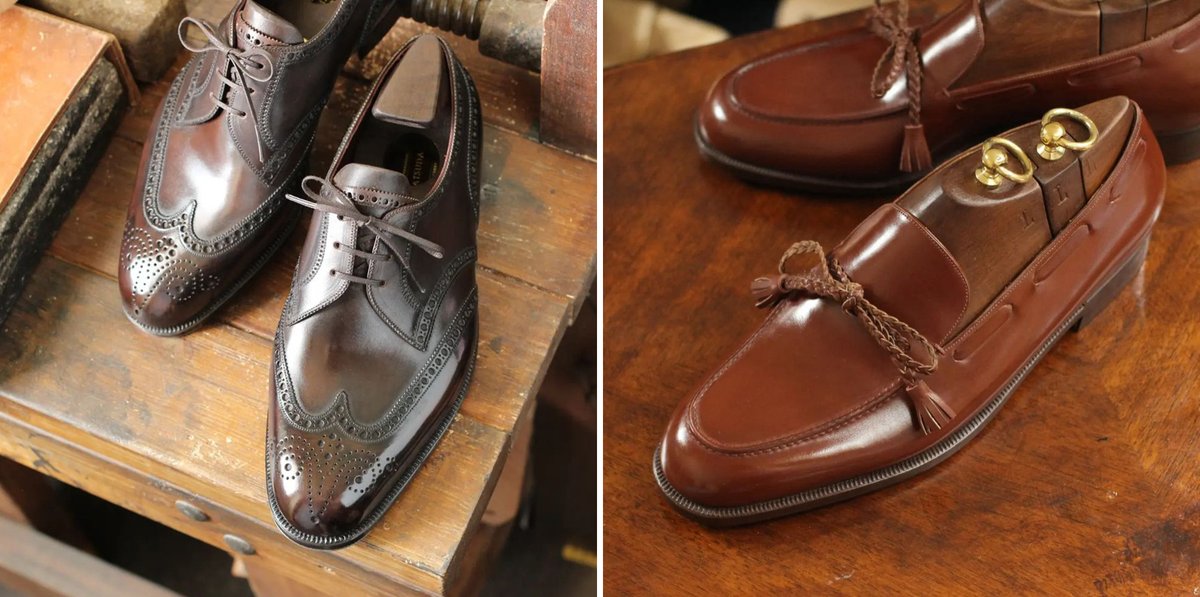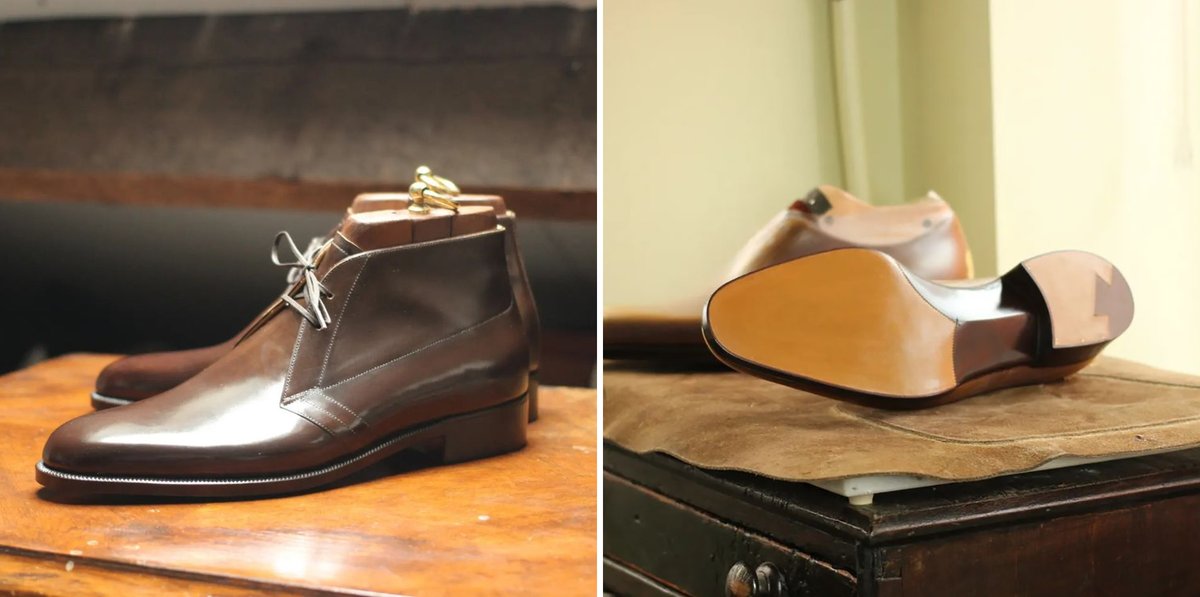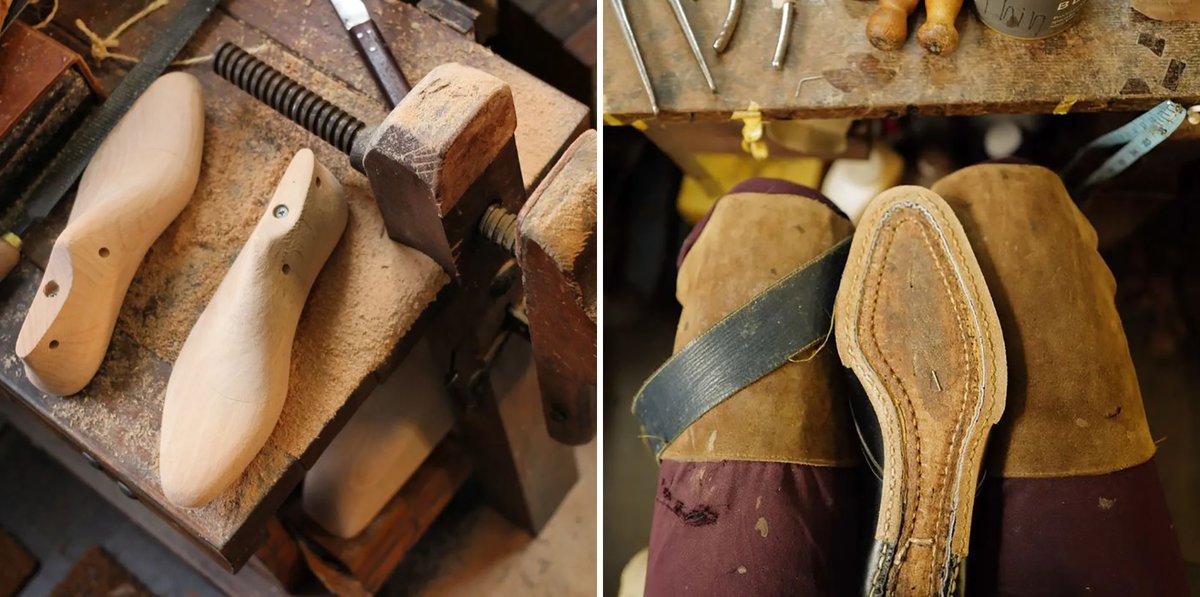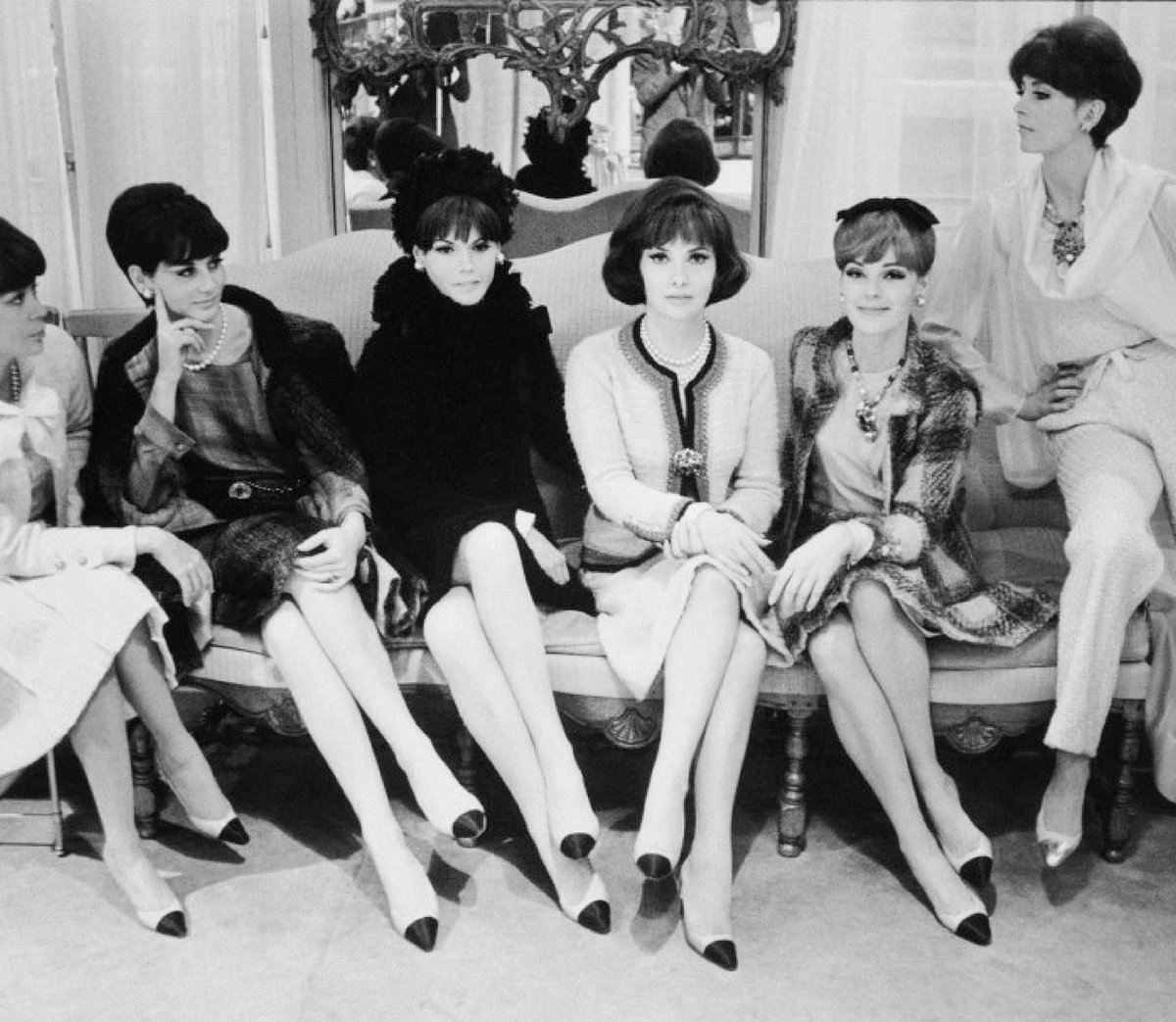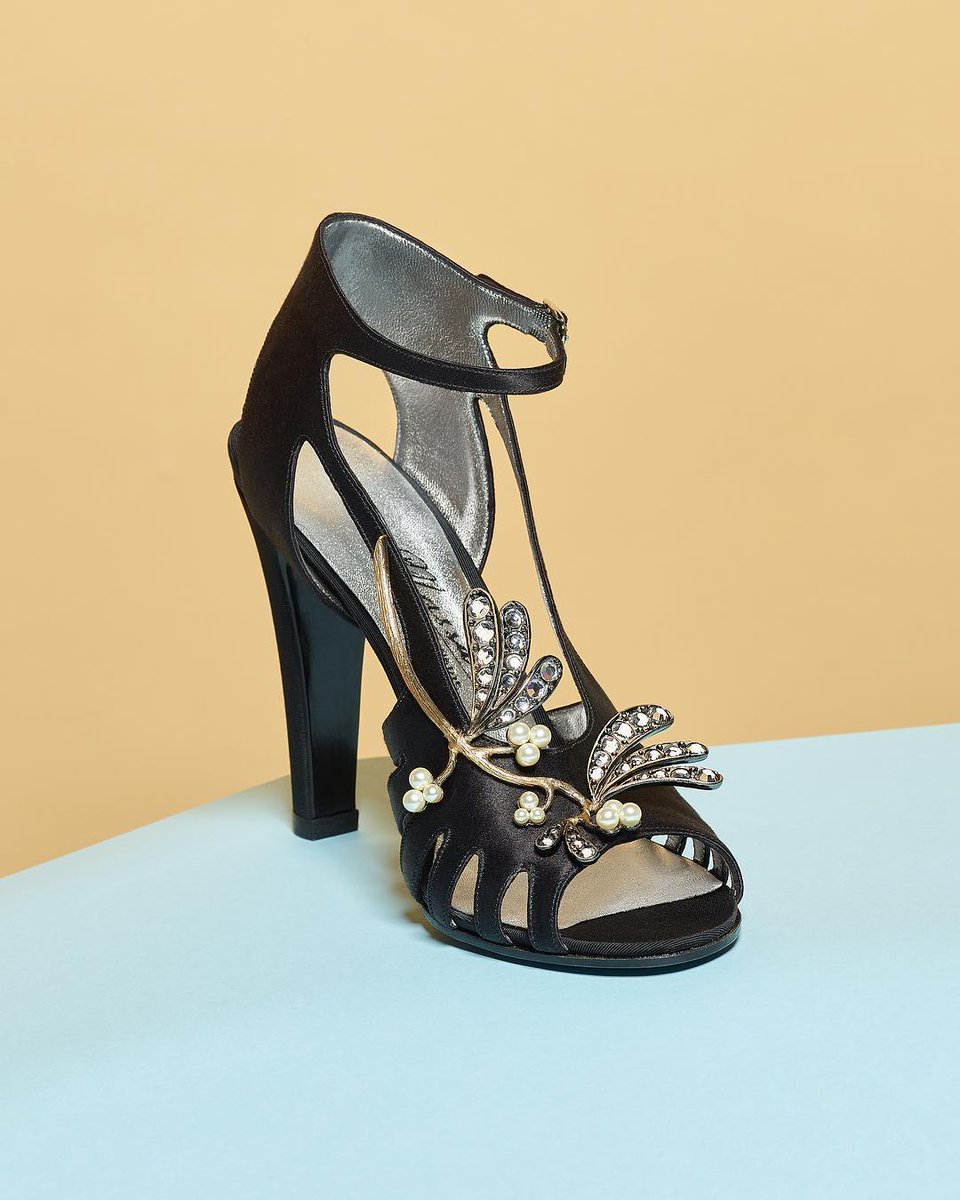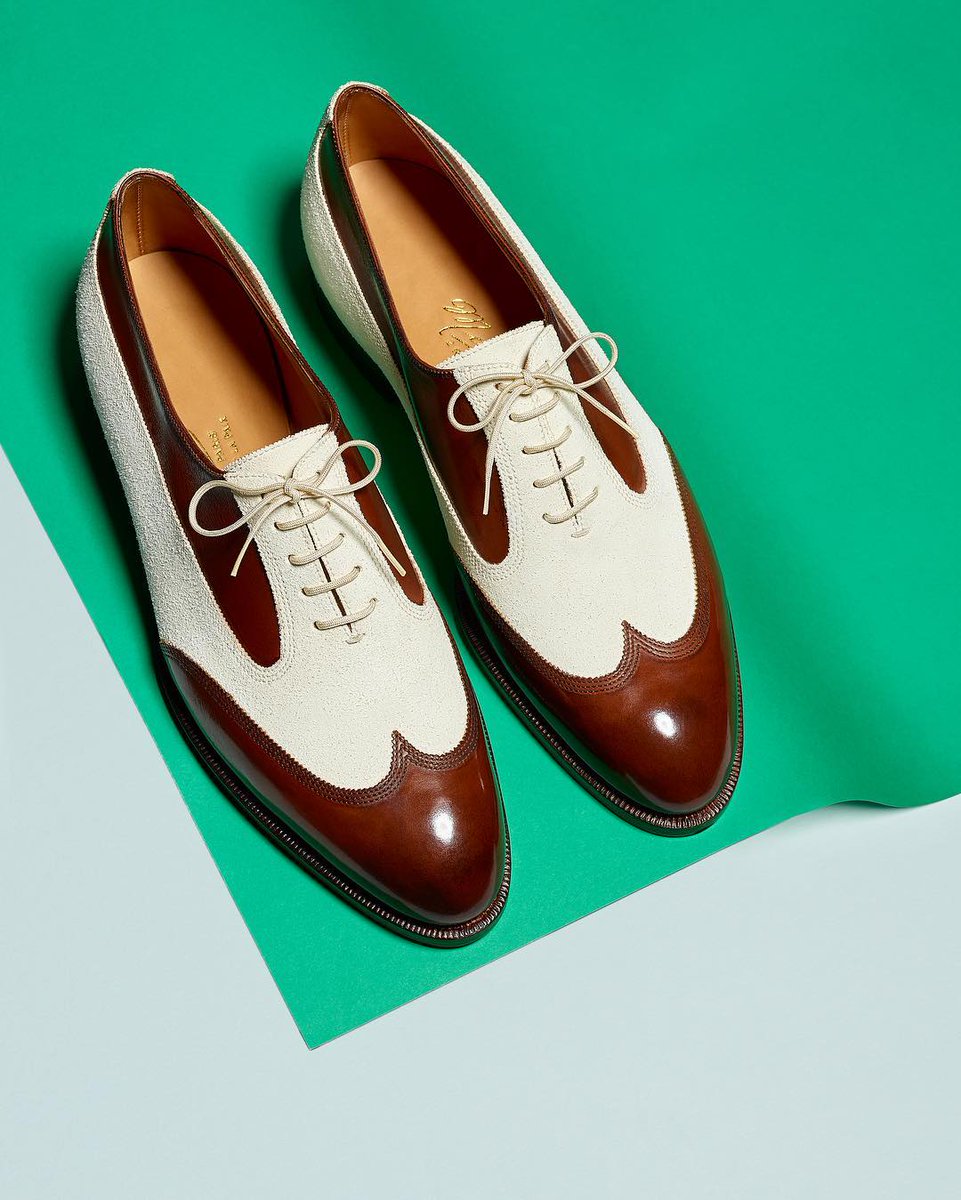there has been a growing trend to wear dark worsteds suits (navy or grey suits made from a fine, smooth dressy wool) with a dress shirt and no tie. and it looks so bad. 🧵




everyone who does this thinks they look like george clooney or tom ford. or they're cool and relatable and just a casual sort of dude. they project neither of those things. they just look like every downtown schlub who hates wearing a suit but bitterly does so bc they have to.
the thing is that there are many types of suits. if you want to dress down the suit, make it look intentional. choose a casual suit in a non-business color (e.g., brown, olive) and material (e.g., cotton, linen).








instead of choosing a bright white dress shirt with a semi-spread collar (very business-y), choose a more casual option, such as an oxford cloth button-down, long-sleeve polo, or some kind of sweater (e.g., turtleneck or crewneck)






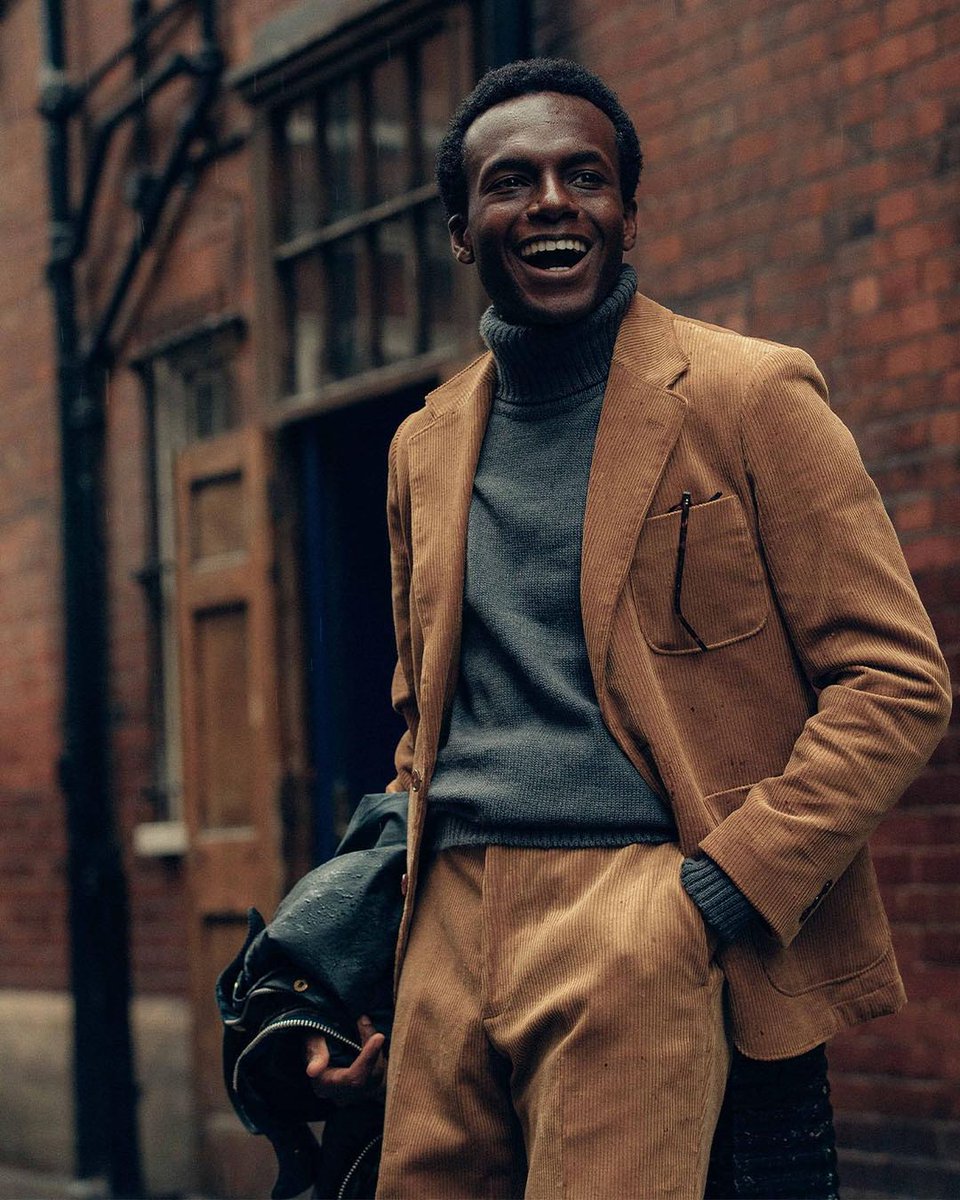

in this way, you are making everything casual. you are not just wearing a business outfit but without a tie—the laziest way you can try to "dress down" a suit. a business suit without a tie is like the night sky without stars. the chest area looks empty. the outfit looks sad. 

if you're wearing a business suit, put on a tie. if you are trying to communicate something a little more casual and relaxed, then make everything relaxed. do a casual suit. or ditch tailoring and dress casual. make the outfit coherent so it doesn't look like you hate ur suit job








going to be blunt: a good way to dress better is to ask yourself, "does this look like the sort of thing a finance MD would wear?" dress sneakers, dark suit without a tie, fleece vest with dress shirt, business casual, etc. all these things are bad
https://twitter.com/_mattneary/status/1680334262178906114
i know some people are going to be like, "i work in a casual office and can't wear a tie." very reasonable! then just don't wear a dark business suit. many ways to do business casual that's not fleece vest, slacks + dress shirt, or dark suit with no tie
putthison.com/how-to-do-busi…
putthison.com/how-to-do-busi…
• • •
Missing some Tweet in this thread? You can try to
force a refresh







